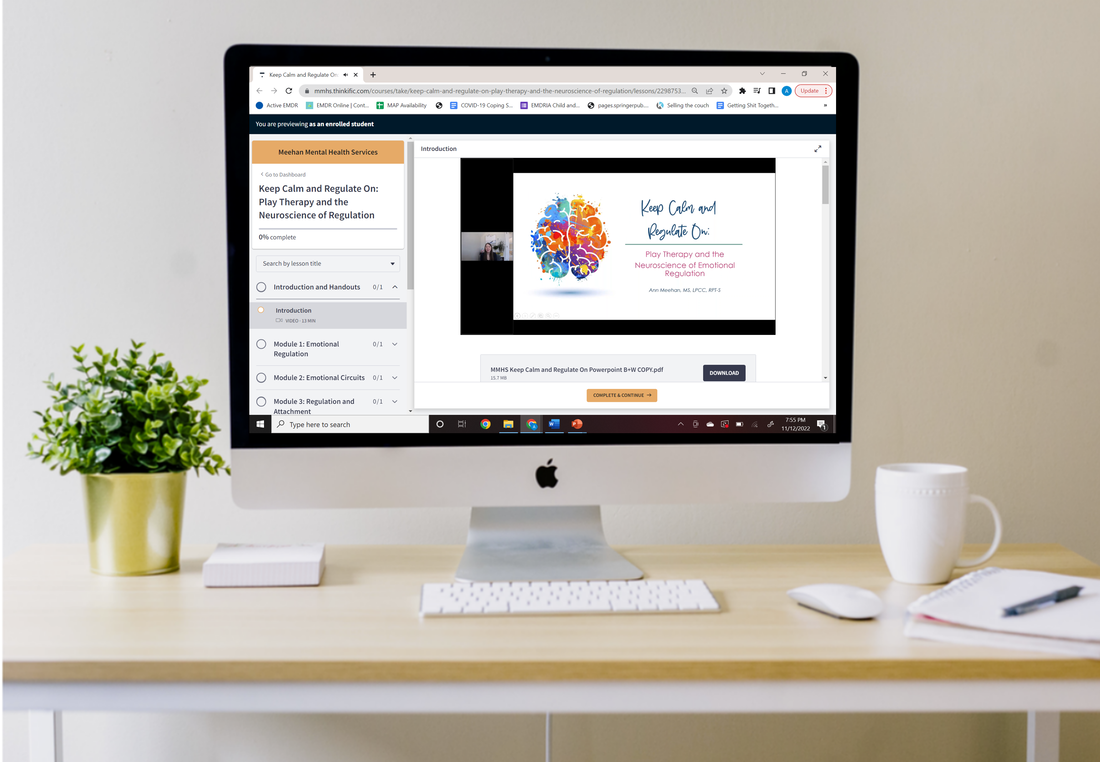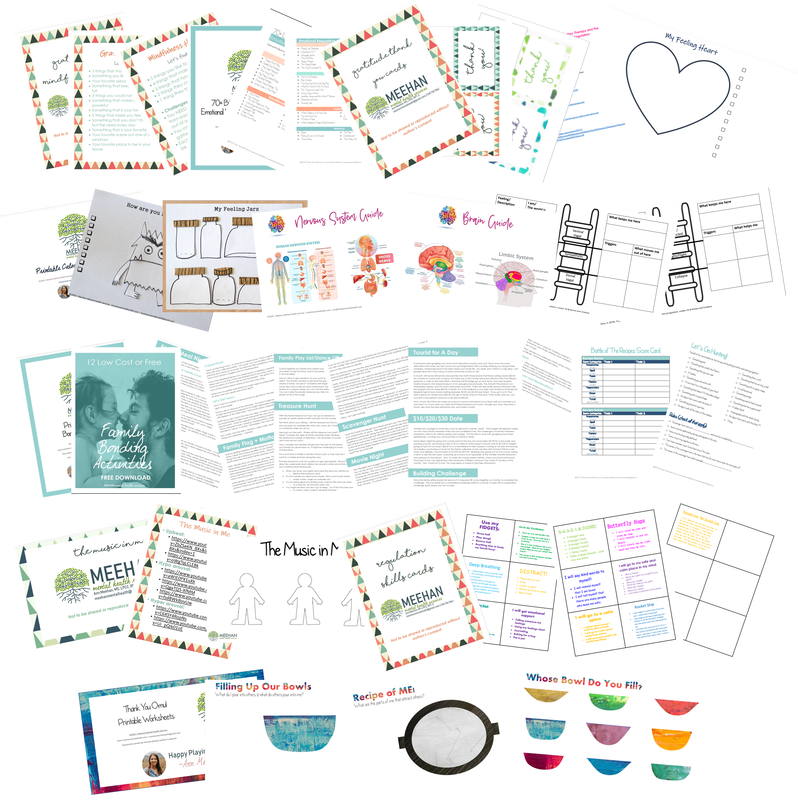|
Do you love neuroscience but aren’t quite sure how to integrate it into your play therapy practice?
You walk away neuroscience trainings, podcasts, and blogs excited, and also overwhelmed. You're unsure of what exactly to do next, with your next client - tomorrow. You work with so many young people who are overwhelmed, dysregulated, and distressed. Each client that walks through your door has some sort of dysregulation - from anxiety, to anger and rage and everything in between. Children who are dysregulated because they have faced some of the most difficult and painful traumas or kids and teens who get stuck in sadness - like a raincloud they just can't shake. You also work with parents and know the pressure to make progress or "fix" the behaviors that happen when kids are emotionally out of control. The physical aggression, lack of participation at school, or isolating in their room. Other times the focus pivots to frequently crying and tantrums, difficulty sleeping in their own bed, or turning in homework on time. You want to help your clients gain control over their emotions (and behaviors) but are looking for more tools in your toolbox and a better understanding of how to transfer neuroscientific principles of emotional regulation (that can be cumbersome) into your daily practice. Your thinking.... all of this neuroscience is great - but what next? How exactly do I unlock the code of emotional regulation? AND what do I do about all these behaviors that are causing so much distress? Now, imagine coming into your next session...
Imagine being able to actually shift the way that you play that is in line with neuroscientific principles - knowing how to take all of the cumbersome research and put it into specific and actionable steps in your everyday practice! Inside this course you will learn:
|
|
You will also discover the answers to some of the most difficult questions child therapists face including:
AND once we can understand this information you will be able to identify exactly what to do next in your play therapy practice to have a giant impact. From how to explain these concepts to parents and children to what activities and techniques to use. You also won't walk away empty handed! In addition this course provides over 13 downloadable handouts, printables, and companion worksheets including directive Play Therapy activities that combine neuroscience and the powers of play for emotional regulation! |
|
Handouts Include:
|
|
Want to learn more? Check out the details below!
|
|
CE Information:
This course is approved for 8 APT Non-Contact hours by Meehan Mental Health Services (APT Approved Provider 19-580). Learning Objectives:
Course Format: Train when it works for you! This course is a pre-recorded online self paced course where the modules are broken up into smaller digestible chunks that can be completed during a client cancellation, on the weekends, early in the morning, late at night - whenever! You can login at your own pace, re-watch content, and have unlimited access to the course. This course is designated "Non-Contact" by the Association for Play Therapy. Who should attend: This course is an intermediate to advanced skill level. Anyone who is interested in the neuroscience behind emotional regulation should attend! Cost: $147.00 |
Course Presenter
|
Hi! I'm Ann - or formally Ann Meehan, MS, LPCC, RPT-S, EMDRIA Consultant. I work as a private practice therapist in the north woods of Minnesota and specialize in working with young people ages 3 and up using Play Therapy and EMDR. I have a library of trainings and run The Playful Therapist Blog. Overall I am passionate about helping other therapists grow into competent and confident Play Therapists, trauma therapists, and child and adolescent therapists. |
Please email [email protected] with questions or concerns.
Play Therapy Credit may not be awarded to non-mental health professionals. There are no refunds for this recorded course. See Meehan Mental Health Services full policies and procedures for online and in person trainings here.























